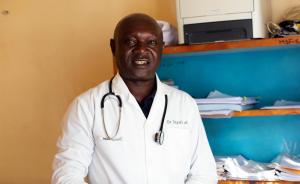WHO and Gilead Sciences extend collaborative agreement to enhance access to treatment for visceral leishmaniasis
Departmental news, Geneva - The World Health Organization (WHO) and Gilead Sciences have signed a new agreement for the donation of 304,700 vials of AmBisome (liposomal amphotericin B for injection), for the treatment of visceral leishmaniasis in countries most impacted by the disease, extending their previous agreement to 2025.
The new three-year collaboration (2023-2025), estimated at US$ 11.3 million also includes financial assistance that will support improved coverage and access to diagnosis and treatment for affected communities due to visceral leishmaniasis.
“This longstanding collaboration between WHO and Gilead Sciences exemplifies a successful public-private partnership for advancing the public health agenda and bringing the needed care to affected populations,” said Dr Tereza Kasaeva, Assistant Director-General, a.i., Universal Health Coverage/Communicable & Noncommunicable Diseases. “During the past 9 years, AmBisome, donated by Gilead Sciences, has brought endemic countries, especially in the South-East Asia Region on the verge of eliminating visceral leishmaniasis as a public health problem- a dreaded disease, known for high potential for mortality and outbreak.”



